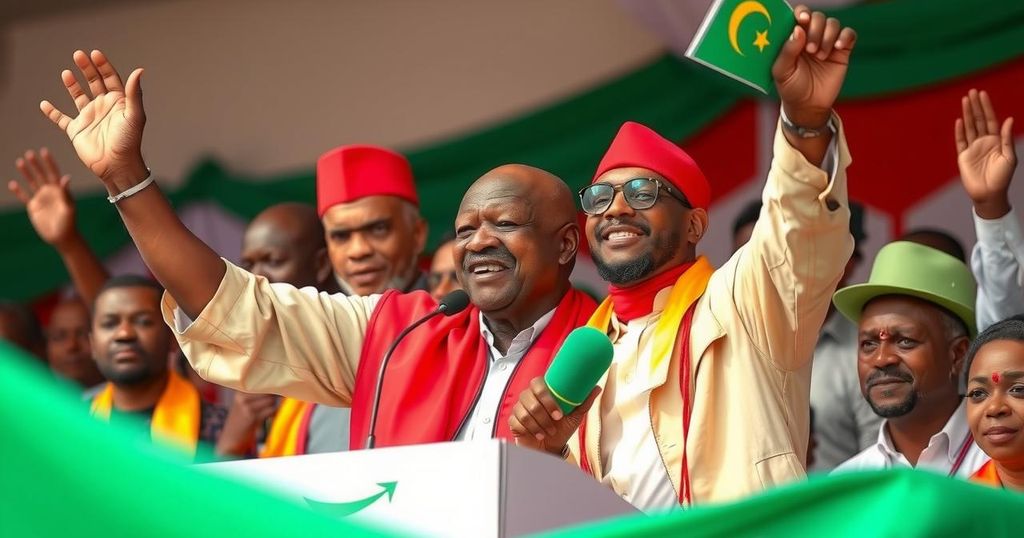Chad’s Ruling Party Secures Parliamentary Majority Amid Opposition Boycott

Chad’s ruling party won 124 out of 188 seats in parliamentary elections boycotted by the main opposition. Voter turnout was 51.5%. President Deby aims to decentralize power following his military leadership assumed in 2021. The opposition has dismissed the elections as a ‘charade,’ while security threats and poor relations with France complicate Chad’s democratic transition.
In a parliamentary election held last month, Chad’s ruling Patriotic Salvation Movement (PSM) party secured a significant majority, claiming 124 out of 188 seats in the National Assembly. This election, which marked Chad’s first parliamentary vote in over a decade, was boycotted by the main opposition parties, including the prominent Transformers party. Voter turnout was reported at 51.5%, according to provisional results disclosed by Ahmed Bartchiret, the head of the electoral commission.
This electoral event is seen as a consolidation of power for President Mahamat Idriss Deby, who ascended to military leadership in 2021 following the death of his father, long-time president Idriss Deby Itno. The ruling party hopes that these elections will facilitate a transition to democracy and decentralization, a process that has been a long-held aspiration for the Chadian populace. However, the opposition has characterized these elections as a “charade” given their boycott, raising concern over the credibility of both the parliamentary and last year’s presidential elections.
The recent elections were also into a backdrop of significant security challenges facing Chad, including ongoing Boko Haram insurgent threats and the nation’s deteriorating relations with France, a country that has historically been a crucial ally. While President Deby has proclaimed the elections as instrumental in paving the way for a more decentralized governance structure, the opposition’s absence raises questions about the legitimacy and acceptance of the electoral process.
Chad has experienced a turbulent political landscape, particularly following the death of President Idriss Deby Itno, who ruled for thirty years. The transition of power to his son, Mahamat Idriss Deby, has been met with scrutiny and calls for democratic reforms. This parliamentary election is part of a broader strategy to establish democratic governance; however, the absence of the main opposition, who claim the electoral process lacks credibility, casts doubt over its legitimacy. The socio-political climate includes challenges such as security threats from militant groups and diplomatic strains with key allies, influencing the current government’s stability and future governance.
In conclusion, Chad’s ruling party has successfully claimed a majority in the recent parliamentary elections, which were boycotted by the main opposition. This electoral event not only marks a pivotal moment in the country’s political transition but also raises significant concerns regarding the legitimacy of the electoral process, particularly in light of the opposition’s absence. Furthermore, the ongoing security challenges and strained international relations add complexity to Chad’s pathway towards stable governance and democracy.
Original Source: abcnews.go.com







